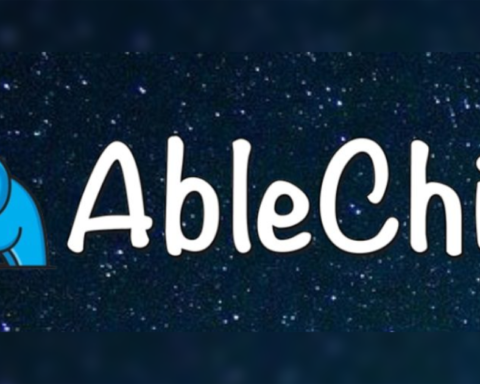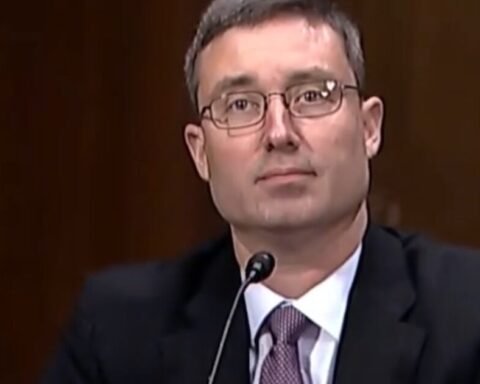Guest post by Joe Hoft at JoeHoft.com – republished with permission

15.5 Million Adult Americans Think They Have ADHD
Republished with permission from AbleChild
Like most alleged psychiatric disorders, attention deficit hyperactivity disorder (ADHD) is a fraud diagnosis. Put simply, and honestly, there is no abnormality in the brain that is ADHD.
The mental health and pharmaceutical industries can say it exists…that it’s a real brain disorder, but it just isn’t true. This doesn’t stop such august institutions like the Center for Disease Control and Prevention (CDC) from reporting that fifteen and a half million American adults suffer from ADHD. Of course, this is the same federal agency that said the covid vaccine was effective, would stop people from getting covid and stop them from spreading covid. Oops!
Nevertheless, the recent report from the CDC’s National Center for Health Statistics (NCHS) claims that 15.5 million US adults are living with the condition and explain that “many are being let down by poor access to treatment.”
First let’s review what the American Psychiatric Association says about ADHD in its billing bible, the Diagnostic and Statistical Manual 5. According to the nation’s top psychiatric doctors, ADHD in adults consists of the following:
An ADHD presentation that’s predominantly hyperactive/impulsive can be diagnosed if five or more symptoms of hyperactivity/impulsivity have persisted for at least six months. The person should also have less than five symptoms of inattention.[3]
The following are symptoms of hyperactivity and impulsivity in adults based on the DSM-5:[3]
- Leaving their seat when expected to remain seated (e.g., during a meeting or lecture)
- Blurting out answers and completing other people’s sentences
- Interrupting other people or intruding on their activities
- Struggling to stay quiet during activities
- Fidgeting and tapping hands or feet
- Often on the go and unable to sit still
- Trouble waiting their turn
- Talking excessively
- Feeling restless
It’s ridiculous, right? Who hasn’t blurted out an answer or interrupted someone in a meeting? Fidgeted during a boring meeting? Yeah! Does that mean that extremely addictive, mind-altering drugs are needed? No. But more than 15 million American adults have apparently bought into the disorder and can receive drug “treatment.” Unlike the children who are forced to accept an ADHD diagnosis and take drugs against their will,15 million adult Americans have freely bought into the bogus diagnosis and willingly are taking mind-altering drugs.
The question, as always, is that if there is no abnormality in the brain that is ADHD, what exactly are the drugs “treating?” ADHD cannot be detected in any brain scan and no urine or blood tests. Fully aware that ADHD is not an abnormality of the brain, let’s now consider the drugs that are alleged to “treat” the alleged disorder.
Vyvanse or Adderall is at the top of the list of “treatments” for ADHD. Adderall is amphetamine…a stimulant and is a Schedule II drug, a controlled substance by the Drug Enforcement Administration (DEA) and falls within the same category as cocaine, heroin, and meth. Why is this drug controlled by the DEA? Because it is highly addictive and can lead to abuse and overdose. Adderall is similar to cocaine and can have serious side effects including insomnia, nervousness, agitation, anxiety, psychotic episodes, irritability, aggression, anger, overstimulation, hallucinations, emotional liability, and possible death.
It’s of interest too that the Food and Drug Administration (FDA), which approves these drugs, has no clue how the ADHD “treatment” Adderall works in the brain saying, “the mode of therapeutic action in ADHD is not known.”
So, 15.5 million American adults have been diagnosed with an alleged disorder that is not based in medicine or science and the agency that approves drugs has zero understanding of how the drugs work as “treatment” for ADHD.
What is also of interest is that when one peruses the CDC’s ADHD data many factors were taken into consideration such as age groups, gender, education, nationality, income and even ADHD treatment history. The one thing that was missing were questions regarding any prior psychiatric drug use for other alleged psychiatric disorders. Not one question was posed to respondents as to whether they were currently being treated for other psychiatric diagnoses or had been treated in the past.
This is typical data gathering by the mental health industry. Don’t ask about other psychiatric drug use and for how long the drugs have been used. That would throw a wrench into the ADHD data because other drug use could account for the alleged symptoms for the new ADHD diagnosis.
Asking all the important questions and having all the prescription drug data among the respondents would expose the fact that no one is getting better, and, in fact, additional psychiatric diagnoses become standard drug cocktail “treatments.”
Be the Voice for the Voiceless
Every dollar you give is a powerful statement, a resounding declaration that the struggles of these families will no longer be ignored. Your generosity today will echo through generations, ensuring that the rights and well-being of children are fiercely guarded. Don’t let another family navigate this journey alone. Donate now and join us in creating a world where every child’s mind is nurtured, respected, and given the opportunity to thrive. As a 501(c)3 organization, your donation to AbleChild is not only an investment in the well-being of vulnerable children but also a tax-deductible contribution to a cause that transcends individual lives.
The post AbleChild: 15.5 Million Adult Americans Think They Have ADHD appeared first on The Gateway Pundit.
Source: The Gateway Pundit
TruthPuke LLC hereby clarifies that the editors, in numerous instances, are not accountable for the origination of news posts. Furthermore, the expression of opinions within exclusives authored by TruthPuke Editors does not automatically reflect the viewpoints or convictions held by TruthPuke Management.












